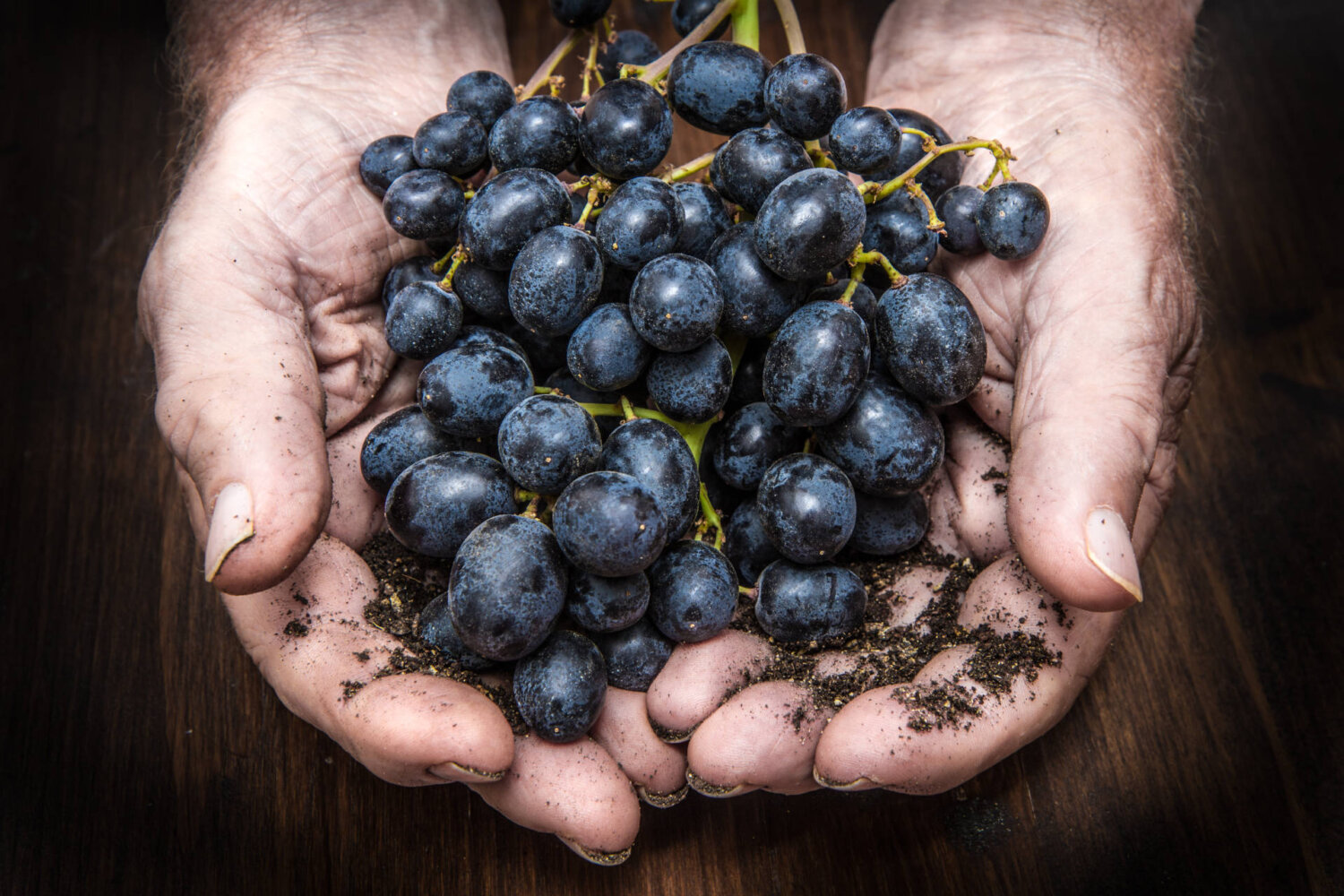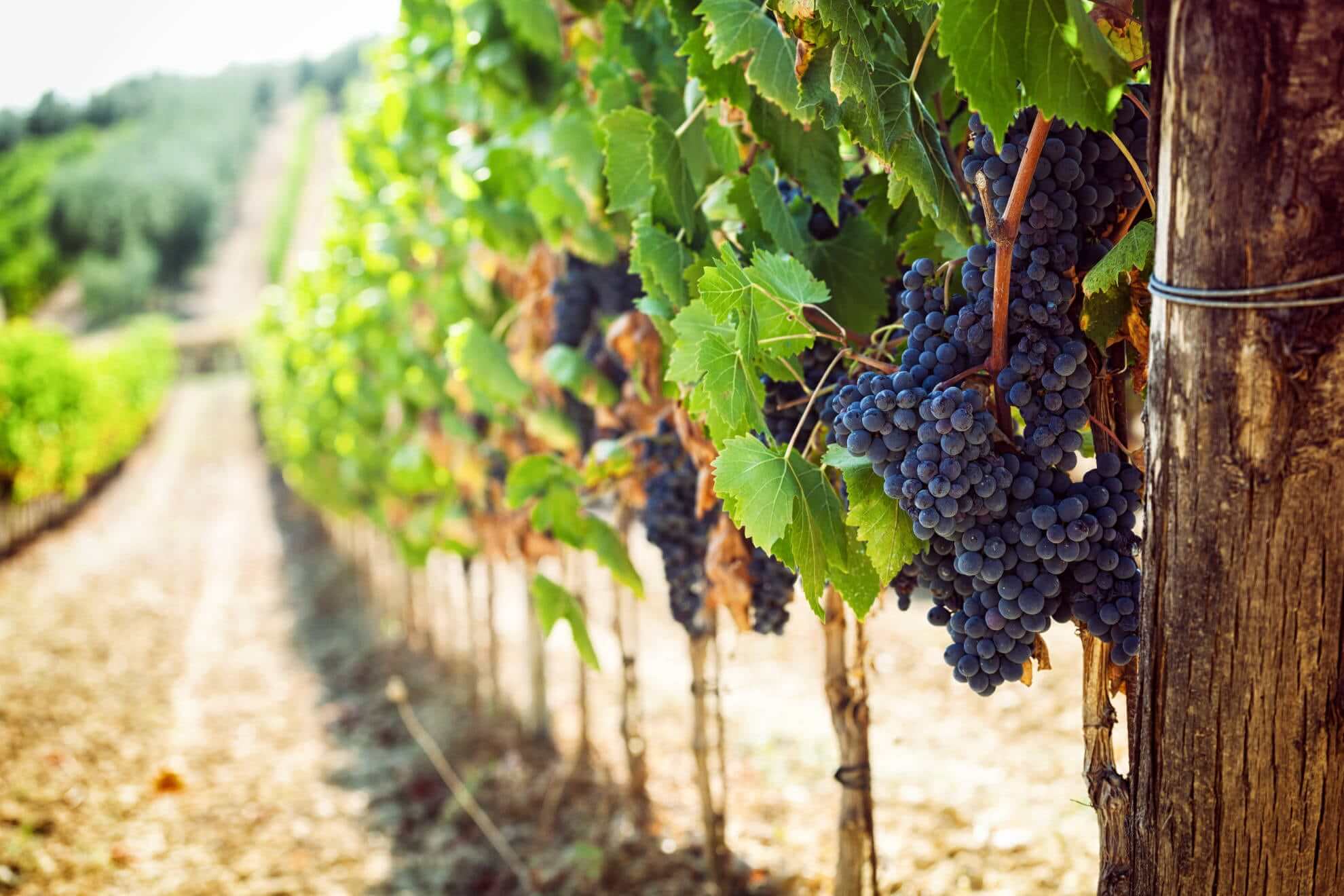News & Events
What is organic wine (and why you need it in your life)

Want to get more from your wine than taste alone? The rising demand for organic wine is seeing winemakers work more closely with nature, championing biodiversity and producing more sustainable wines that taste delicious and protect the planet. These wines are also free of pesticides and synthetic chemicals to reduce harm to the environment.
What is organic wine?
Surely all wines are organic, right?
Surprisingly, the answer is no (if only life was that simple).
Here’s the science bit. Organic wine is made using organically-grown grapes. To qualify as organic, the grape crop can’t be grown in a vineyard that has synthetic fertilisers or pesticides applied. Natural fertiliser products, such as animal manure or seaweed are fine, however.
For a wine to market itself as organic, it must also be awarded a third-party certification from a body such as the Soil Association or the Organic Food Federation. It takes a minimum of three years to gain the certification (and that’s if you’re successful), so you know that a lot of effort has gone into being organically certified when choosing a bottle.
But it’s the stories behind organic wine that help it stand head and shoulders above the uniformity of mass-produced supermarket bottles. Inventive young winemakers have been actively hunting down organically grown grapes and – coupled with their love of nature – are producing small-batch, carefully curated wines that challenge the status quo.
It’s led to some innovative thinking in wine production. Instead of drenching vineyards in chemicals that make their way into the food chain, organic winemakers employ natural alternatives, such as certified-organic grazing sheep, to take care of weeds and grass (and yes, even the sheep need to be fully organically certified, such as entirely grazing them on organic paddocks).

Why drink organic wine?
So, does organic wine have benefits over the kind of traditional wine you’d pop into the trolley as you cruise the supermarket aisles?
You bet – and more than just helping you unwind after a stressful day! When relaxing with a glass of organic wine you know that your favourite drop won’t be harming the environment, and organic wines may be beneficial to people who suffer from sulphite allergies, for example, compared to non-organic wine.
Organic wine benefits
Organic wine has fewer sulphites
Sulphites are antibacterial preservatives used to maintain a wine’s shelf-life and colour. Load up wine with sulphites, and you get a longer-lasting, richly coloured wine. This is great news for mass producers, but less good if you’re one of the unhappy few to suffer from sulphite intolerances, which can cause asthma attacks, allergic reactions and stomach issues.
Organic and new world wines tend to involve cleaner winemaking, requiring fewer sulphites. As dry wines don’t need a lot of sugar, sulphite levels are also lower. These wines are great alternatives for anyone with sulphite sensitivities and allergies.
Organic wine has less sugar
Grapes are naturally high in sugar, so it’s no surprise that wine has sugar content.
The good news is that organic and dry wines tend to be lower in sugar as they are fermented for longer. Some non-organic wines may add additional sugar to increase sweetness and even to disguise a bland-tasting drop. With the avoidance of added sugars, organic wines are naturally lower in sugar. For a wine to get organic certification it mustn’t be interfered with post-fermentation, such as reducing the alcohol level, meaning organic wine is less manipulated than some non-organic wines.
Organic wine hangovers might be less severe
It’s a story all too familiar, a few glasses of wine seems nothing, but the hangover the next day can be a real killer.
Organic wine could well be your foggy-headed saviour. With fewer sulphites and the chemical lab of additives, your hangover might not be quite as bad the following day. However, dehydration can often be the main cause of a hangover due to the diuretic effect alcohol has. Just make sure you’re topping up with water in between glasses to help ward off a hangover.
Environmental benefits
Organic wine isn’t just good for you – it has some positive effects on our planet and can play a role in helping us live greener, more sustainable lives.
Fewer chemicals harming the environment
Organic wines are made from grapes grown in pesticide-free and chemical-free vineyards. Fertilisers and pesticides can pollute waterways such as rivers and lakes if overused or incorrectly applied, harming wildlife and damaging the local ecosystem.
As chemicals are an absolute no-no when it comes to organic wine, these wines are significantly better for the environment. #savetheplanet
Organic farming creates a home for wildlife
Thanks to giving chemicals the heave-ho, vineyards are transformed. Out go industrial factories, and in come thriving, natural environments home to a vast array of wildlife, plants and insects.
Here at RedHeads, for example, we love bees. We’ve been planting bee-friendly native plants to encourage bees to visit and help pollinate our vines. From sending our waste grape skins to the local distillery (cheers!) to recycling our stalks into compost, we believe we have a responsibility to be as sustainable as possible.
Organic certification
Nowadays, wine bottles are littered with different awards and certifications without us even questioning if they’re legit. However, for organic wine, a certificate of organic status means it’s the real deal.
It’s a tough slog to get organically certified, but we reckon it’s worth the sweat.
Growers of organic wine must stick to their organic growing methods for at least three years before being allowed the full organic certification from a third-party certification body. However, the US and EU have differing opinions about what defines an organic wine (mainly bickering over the amount of sulphites allowed).
Australian wines define their organic varieties as being made by organically-grown grapes without chemicals such as synthetic fertilisers and insecticides. Aussie rules allow for sulphites and preservatives to a maximum of 100mg/L total sulphites in organic dry wine, which isn’t a problem for us at RedHeads as our wines can have as little as 80mg/L.
When looking for a bottle of organic wine, scour the label for organic certification. It’s not a certified organic wine without this, no matter how much green spin a label has.
Organic wine recommendations
Our velvety shiraz, March of Progress, is the perfect excuse to try a more sustainable and organic choice. This rich organic red wine features notes of black fruits and toasted spice. Expertly created from organic grapes grown in Australia’s famous Mclaren Vale, March of Progress comes from an eco-friendly wine producer. Think solar panels, batteries, sensible water reuse, smart irrigation, a swarm of bees and a lot more.
Curious about vegan wines? Read our article on what is vegan wine to find out that actually (spoiler alert) not all wine is vegan.



